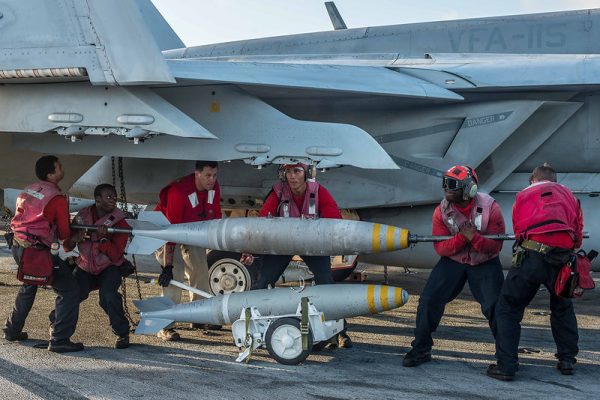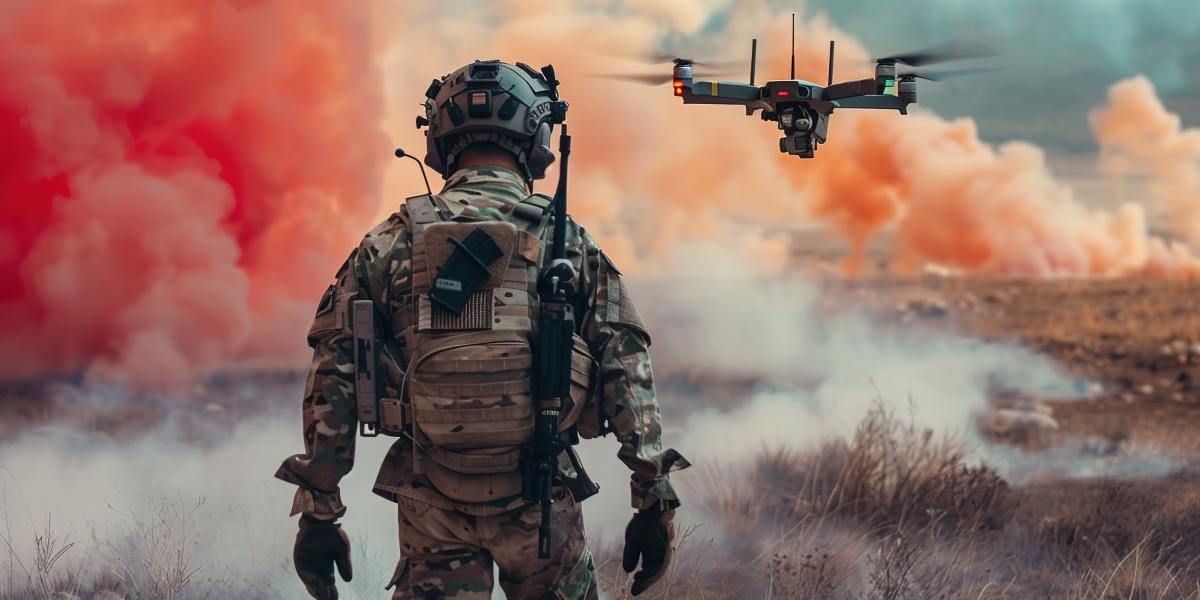Yemen has been heavily bombed for many years. The U.S. enabled the bombing of Yemen from 2015 until 2024, and it is now bombing Yemen directly. I will examine the history of these bombing campaigns and explain how they reflect a dysfunctional and delusional approach to the use of armed force in U.S. foreign policy. The bombing of Yemen can be divided into two phases: the campaign against the Houthi-led faction in the Yemen civil war and the U.S./Israel campaign resulting from the Gaza war. In neither phase has it been military effective.
Some Facts about Yemen
Yemen is not a tiny country. Although it is relatively small economically, it has a population of over 30 million and a land area between the size of California and Texas. The nation’s geography includes large areas of desert, but there are also extensive mountainous regions and a long coastline. Yemen is an ancient country, and the city of Sana, a World Heritage Site, has been continuously inhabited since the first century CE. Like Iraq, Yemen is a religiously divided tribal society, with Shia Houthis in the more populous northwest and Sunni tribes in the southeast. Tensions between these factions erupted into a civil war in 2014.
The Yemen Civil War is a complex conflict involving multiple parties. It started when Houthi rebels, a Shiite group from northern Yemen, seized the capital, Sanaa, and forced the internationally recognized government of President Abdrabbuh Mansur Hadi to flee. In 2015, a Saudi-led coalition, backed by the U.S. and other allies, intervened militarily to restore Hadi’s government. The war has also involved separatist movements, Islamist groups like Al-Qaeda, and regional rivalries between Saudi Arabia and Iran, which supports the Houthis. The conflict has led to one of the world’s worst humanitarian crises, with widespread famine, disease, and civilian casualties.
How the Bombing Started – The Yemen Civil War
The bombing of Yemen by the Saudi-led coalition began on March 26, 2015. The operation, called Operation Decisive Storm, was launched in response to the Houthi takeover of the capital, Sanaa, and their advance toward Aden, where President Abdrabbuh Mansur Hadi had fled after escaping house arrest in Sanaa.
The air campaign was initially intended to weaken the Houthis and restore Hadi’s government, but it escalated into a prolonged conflict, causing widespread destruction and a severe humanitarian crisis. The coalition, consisting of Saudi Arabia, the UAE, and other Arab states, received logistical and intelligence support from the U.S., U.K., and other Western allies. Despite years of bombings, the Houthis remain in control of northern Yemen, including Sanaa.
U.S. supplied bombs were used in vast numbers in thousands of Saudi alliance airstrikes, inflicting substantial casualties. Rough estimates based on the the number of strikes indicate that approximately 40,000 tons of bombs were dropped on Yemen by the Saudis and their UAE ally. Many of these were “precision munitions,” but they were often used with little concern for civilian casualties.

Death from Above

Precision strike?
How the Bombing is Going – U.S. Attempts to Break the Rea Sea Blockade
The U.S. had been making small and sporadic air strikes against Al Qaeda forces in Yemen, mostly with drones, since 2002. The tempo of these strikes increased until 2016, but the strikes were still pinpoint attacks, usually aimed a key individuals. Under the first Trump administration there were still more anti-terrorist strikes, with attendant civilian casualties. Under Biden, in 2021, these strikes declined, partly as a result of a cease-fire in the civil war.
With the outbreak of the Gaza, war, the Houthis declared a partial blockade of the Red Sea, prohibiting the passage of Israel related shipping. Israel launched several airstrikes against Yemen in an effort to break the blockade, and the U.S. committed naval forces to defend shipping against Houthi missile strikes. These efforts have been ineffective. There has been a significant reduction of shipping traffic because insurers are reluctant to provide coverage in the presence of war risks.
The blockade was suspended by the Houthis during the Gaza truce, but when hostilities resumed in March of this year, the Houthis again began launching missiles against selected ships and attacked Israel with long-range missiles. Trump then initiated an intensive campaign of airstrikes against the Houthis and threatened to escalate the campaign further. Hundreds of strikes have been conducted by U.S. Navy and Air Force planes, with no end in sight. The Houthis show no sign of halting their missile attacks and have continued to shoot down U.S. reconnaissance drones.

Cui bono?

U.S. MQ-9 Reaper drone – 17 downed and counting
The Military Logic of Bombing
The delivery of bombs by aircraft developed for tactical and strategic purposes. The limited payload and numbers of early aircraft limited bombing to functioning as a kind of long-range artillery used to strike targets of tactical significance. After WWI, Germany pioneered a combined-arms approach that incorporated tactical bombing as a close support method for armored assault groups, enabling the blitzkrieg offensives of WWII. The mass production of long-range bomber aircraft in WWII enabled the rise of strategic bombing. Instead of directly assisting ground forces, the strategic bombers would deliver large-scale strikes intended to deprive the enemy of industrial war making resources.

J-87 Stuka – Blitzkrieg enabler
Military historians have judged tactical bombing to be a successful military innovation, and it remains the rationale for development and deployment of fighter/bomber aircraft worldwide. The combined-arms approach, in which air strikes are closely coordinated with ground operations, is standard military doctrine for conventional warfare. Opinions on the utility of strategic bombing are more critical. Postwar studies of the efficacy of strategic bombing have questioned the utility of air attacks in hindering enemy war-making potential and damaging public morale. Strategic bombing has seldom proven to be decisive in achieving a wartime victory. With the advent of nuclear ballistic missiles, the strategic role of manned bombers has been eclipsed, making the future of strategic bombing with conventional munitions doubtful.
Applying military logic to the U.S. bombing campaign In Yemen calls into question the purpose of this costly operation. Absent a ground campaign to neutralize Yemen’s missile sites, the bombing can only peck away at the hundreds of concealed and mobile missile launchers. A U.S. ground invasion and occupation would require around 200,000 troops and many years of fighting against insurgents, an unappealing reprise of the Afghanistan war. Strategic bombing of Yemen would require a vast U.S. Air Force and Navy effort and could entail the destruction of cities like Sanaa, a World Heritage site.

Ancient Sanaa – Strategic Target?
Punitive Expeditions and Performative Bombing
Throughout history, powerful nations have launched punitive expeditions against weaker states to assert their dominance and attain objectives by force. This characterized the gunboat diplomacy of the colonial era. The U.S. has used this tactic occasionally against tiny adversaries such as Grenada and Panama, but the practice has gradually become disconnected from geopolitical logic. It has morphed into a kind of performative display of power. To quote from a U.S. neocon foreign policy advisor:
Every ten years or so, the United States needs to pick up some small crappy little country and throw it against the wall, just to show the world we mean business.— Michael Ledeen
A Profitable Theater of Cruelty
U.S. military operations are no longer grounded in the reasoning of geopolitics. Rather, they have become a kind of self-perpetuating spectacle that empowers politicians while enriching and enlarging the defense establishment. When Clausewitz famously stated that “War is merely the continuation of politics by other means,” he was referring to geopolitics, not domestic politics. While America’s wars since 2001 have not achieved any significant international political objectives, they have funneled trillions into the defense industry and advanced many military and political careers. The absence of any accountability for failure to deliver genuine accomplishments confirms this explanation. The continuing vast wasteful expenditures are not a bug; they are a feature. Thus, Trump’s bombing attacks and ferocious threats against Yemen and Iran are theatrical performances on a political stage that aid interests invested in permanent war.

Pete Hegseth, Secretary of War?
Conclusion
The pointless bombing of Yemen is a demonstration of a militarized U.S. foreign policy that has become detached from the political, geographic, and economic realities of the modern world. The U.S. cannot readily invade and occupy Yemen, and it is unlikely to end the Red Sea blockade by force. Performative bombing strikes aimed at arousing patriotic fervor in a war-loving U.S. electorate are inflicting gratuitous harm on thousands of Yemenis while increasing the probability of a wider Mideast War. Inflicting death and destruction on foreigners to no avail is not considered a problem in Washington; it is considered an accomplishment because it serves those who benefit materially and politically from foreign wars, and it feeds the appetite for violence of an ill-informed public.



























